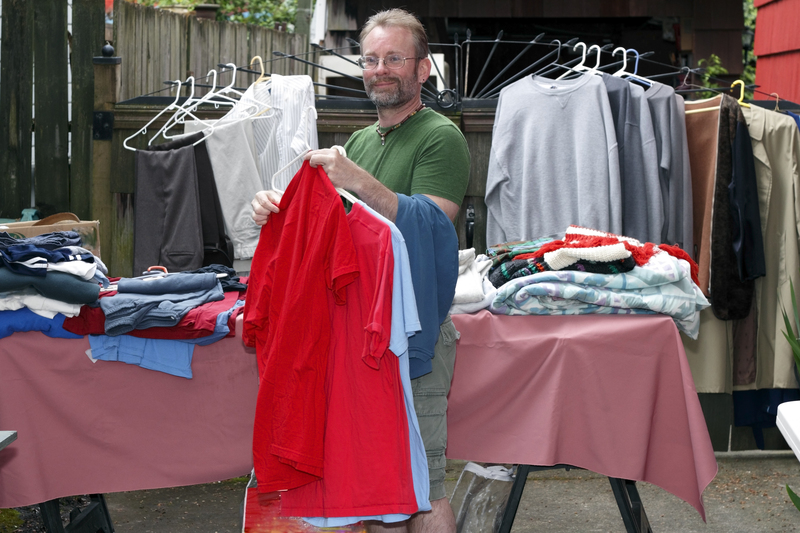Economical Options for Getting Rid of Bulky Waste Items
Getting rid of bulky waste items such as old furniture, broken appliances, and other large household objects can quickly turn into an expensive ordeal. These items are often too large for regular curbside collection and require special handling. However, by exploring a variety of cost-effective solutions, you can dispose of bulky refuse in a way that benefits both your wallet and the environment. In this comprehensive article, we'll discuss the best economical options for getting rid of bulky waste items, covering everything from recycling, donation, and creative reuse, to budget-conscious removal services.
Understanding Bulky Waste: What Qualifies and Why Proper Disposal Matters
Before diving into affordable methods for disposing of large waste, it's essential to understand what constitutes bulky waste and why responsible disposal is important.
- Bulky waste (also known as bulky rubbish or large household items) includes furniture, mattresses, white goods (like fridges and washing machines), carpets, large toys, and sometimes garden waste like branches and tree stumps.
- Improper disposal can lead to environmental hazards, blocked city infrastructure, legal fines, and missed opportunities for items to be reused or recycled.
Public services and private companies often charge significant fees to handle bulky items, especially without a plan. Finding economical ways to get rid of bulky waste not only saves you money but often helps others in your community and protects the planet.

Cost-Effective Solutions for Bulky Waste Removal
1. Take Advantage of Council or Municipal Collection Schemes
Many local authorities offer free or low-cost bulky waste pick-up services a few times a year or by request. These programs are designed to prevent illegal dumping and ensure safe, environmentally-friendly disposal.
- Check your city or council's website for details on when and how to book a collection.
- Some towns allocate a set number of free collections per household each year.
- Items may need to be placed curbside, and restrictions may apply on how many and which types of objects are accepted.
Consider grouping your disposal with neighbours to split any costs for additional pick-ups, further maximizing savings.
2. Utilise Charity and Non-Profit Pickup Services
If your bulky items are still in usable condition (such as gently used furniture, working appliances, or children's toys), many charities and non-profits offer free collection as part of their mission to redistribute goods to those in need.
- National and local charities like The Salvation Army, Goodwill, Habitat for Humanity, or local shelters frequently accept large household items.
- Schedule a pickup online or by phone; often, pickups are free or only require a small donation for fuel.
- Donating not only saves money but can provide you with a tax deduction and the satisfaction of helping others.
Pro tip: Always check with the organization first to confirm what items they accept and their preferred pickup procedures.
3. List Items Online: Give Away, Swap, or Sell
Many people underestimate the value or utility their old items may still have. Digital marketplaces are a fantastic resource for affordable bulky waste disposal and might even put cash in your pocket!
- Freecycle and Nextdoor are platforms specifically designed for giving away items locally with zero cost.
- Facebook Marketplace, Craigslist, and Gumtree allow you to list items for sale or free pickup. Some people enjoy upcycling or refurbishing broken appliances and may collect them for parts.
- Barter, swap, or trade large objects through local community boards or at designated swap events to avoid costs entirely.
By using these platforms, you not only save on disposal fees but also foster a culture of reuse in your neighbourhood--an eco-friendly and wallet-friendly win.
4. Opt for Self-Disposal at Your Local Recycling Centre
Many towns and municipalities run household waste recycling centres or "tips" where residents can drop off large objects for free or a nominal fee.
- Check opening hours and restrictions--certain items, like refrigerators (which contain hazardous gases), may require special processing or paperwork.
- Sort your items beforehand to take advantage of designated bins for metal, wood, electronics, textiles, and garden waste. This can even ensure items are properly recycled or reused by specialists.
- Borrow a friend's truck or rent a van for a few hours to transport multiple items at once, minimizing fuel and time costs.
This solution requires some effort, but the savings compared to professional haul-away services can be substantial.
5. Bulk Waste Collection Events and Community Clean-Ups
Keep an eye out for seasonal or annual community clean-up days and "free dump" events, which are often sponsored by municipal governments or local environmental organizations.
- Residents are often allowed to drop off bulky waste items at no charge during these events.
- These initiatives sometimes include curbside pickup for seniors or those without transport, removing both logistical and financial barriers.
Look for announcements through council newsletters, community groups, or local news outlets so you can take advantage of these zero-cost options when they arise.
6. Rent-a-Skip or Junk Removal Service - The Smart Way
While skip (dumpster) hire and junk removal services can be pricey, you can utilize them more economically with a strategic approach.
- Share the cost: Team up with neighbours and split the price of hiring a skip, especially if you all have bulky items to get rid of simultaneously.
- Compare different providers in your region, as prices can vary widely depending on the load size, labor required, and location.
- Look for discounted rates for "man with a van" services--these are typically less expensive than large commercial removals, especially for smaller loads.
Always ensure your chosen provider is licensed to dispose of waste and preferably supports recycling or eco-conscious practices.
Creative, Eco-Conscious, and Economic Upcycling Ideas
Sometimes, the best way to dispose of bulky items economically is simply to avoid disposal altogether! Upcycling and repurposing give new life to old objects, reduce landfill waste, and save money on buying new items.
Furniture Makeovers
- Transform old cabinets, dressers, and tables into garden benches, storage units, or even chic pet beds with some paint and creativity.
- Facebook groups and YouTube abound with tutorials for turning unwanted furniture into trendy DIY projects.
Appliance Recycling for Parts
- Many electronics and appliances contain valuable metals and reusable components.
- Sell or give away old appliances to hobbyists or local repair shops--sometimes you'll even make some money back!
Garden Waste Composting
- If your bulky waste includes organic matter (branches, logs, yard clippings), consider composting or turning it into mulch instead of paying for removal.
- Some towns offer free community compost bins for residents; check your local council's waste services.
Tips for Reducing Bulky Waste (and Your Costs!) in the Future
- Buy with longevity in mind. Invest in durable, repairable products instead of disposable options to minimize future large-scale disposals.
- Maintain what you own. Regular cleaning, repair, and responsible use can greatly extend the lifespan of furniture and appliances.
- Borrow or rent bulky items you rarely need, such as large tools or event furniture, to prevent future accumulation.
- Choose modular or reusable products, such as furniture designed for easy disassembly and recycling.
Comparing the True Costs of Bulky Waste Removal Methods
To make the best economic choice, you should consider not just the monetary price, but also the time, potential fines, and environmental impact of each disposal method.
| Disposal Method | Typical Cost | Pro | Con |
|---|---|---|---|
| Municipal Collection | Free to low-cost | Convenient, safe | Limited pickups per year |
| Charity Pickup | Free or donation | Helps others, eco-friendly | Items must be re-usable |
| Online Sale/Swap | Free or potentially profitable | Reduces waste | May require time & effort |
| Recycling Centre Drop-Off | Free to small fee | Ensures correct disposal | Transport required |
| Junk Removal Service | $$, but shareable | Low effort | Higher cost if used solo |
| Upcycling | Free (DIY) | Saves money, creative | Requires time/skills |

Common Mistakes to Avoid When Disposing of Bulky Waste
- Don't dump illegally: Illegal dumping is subject to significant fines and harms your community and environment.
- Don't forget to check for hazardous components: Appliances often require special handling for coolants, batteries, or chemicals.
- Don't leave items by the curb without scheduling pickup: Uncollected bulk waste can lead to city fines or pest problems.
- Don't assume items are valueless: What might be waste to you could be useful to someone else, so always consider donation or resale.
Final Thoughts: Choosing the Best Affordable Bulky Waste Removal Option
The pursuit of economical options for disposing of bulky waste items lies in a combination of planning, community resources, creativity, and environmental awareness. Start by exploring free or low-cost council services and donation programs, then consider online platforms or strategic partnerships with neighbours for shared collection solutions. Upcycling can add value to apparent waste, while careful maintenance and responsible purchasing prevent future headaches.
With today's abundance of options, there's no reason to let old sofas, broken appliances, or unwanted furniture drain your wallet or end up in landfills. Use these tips to find a cost-effective, responsible, and sometimes even profitable way to dispose of your large unwanted items.
Do you have your own tips or economical solutions for bulky waste removal? Share your ideas with your local community and help make sustainable, affordable waste disposal the norm!